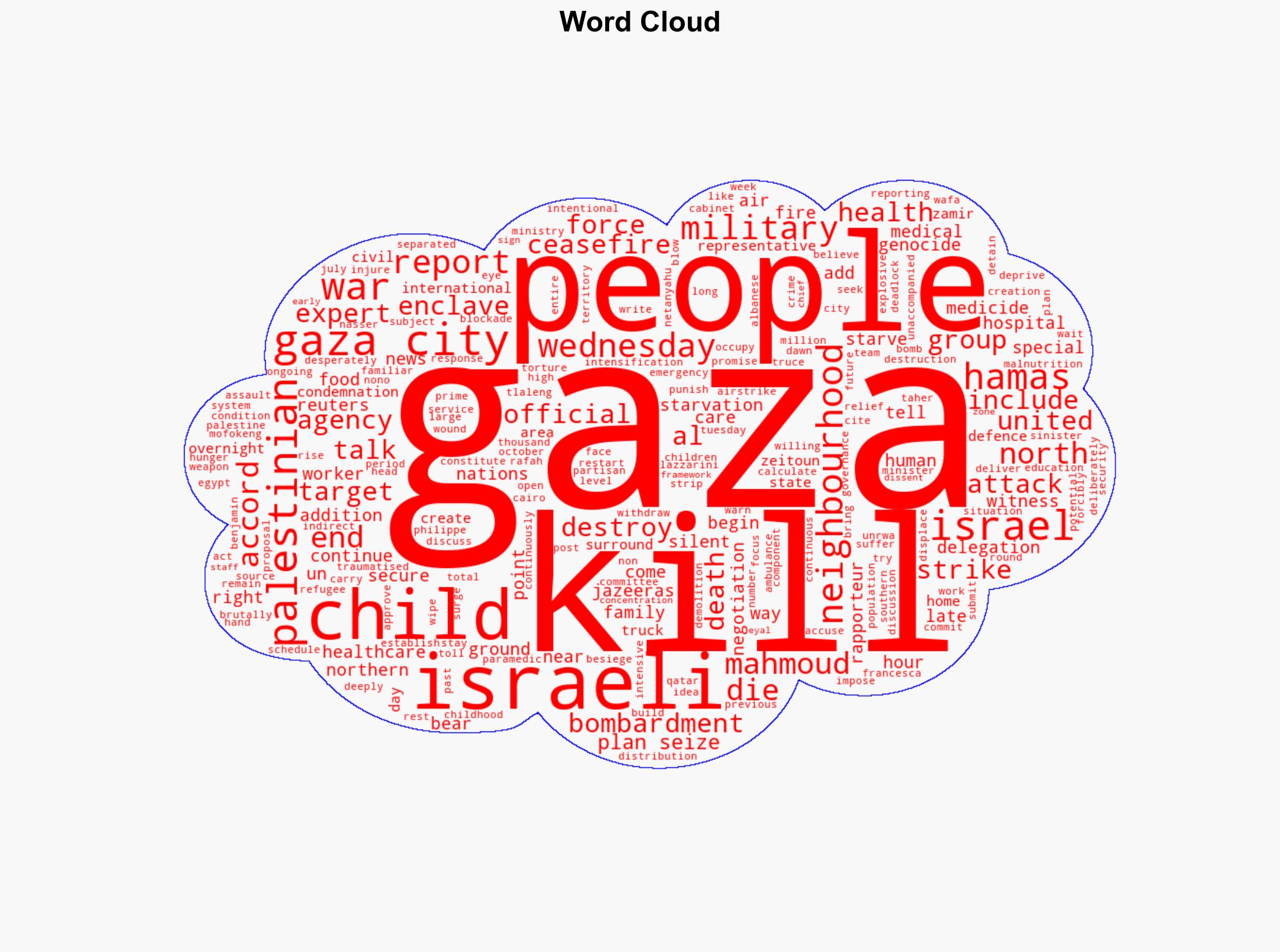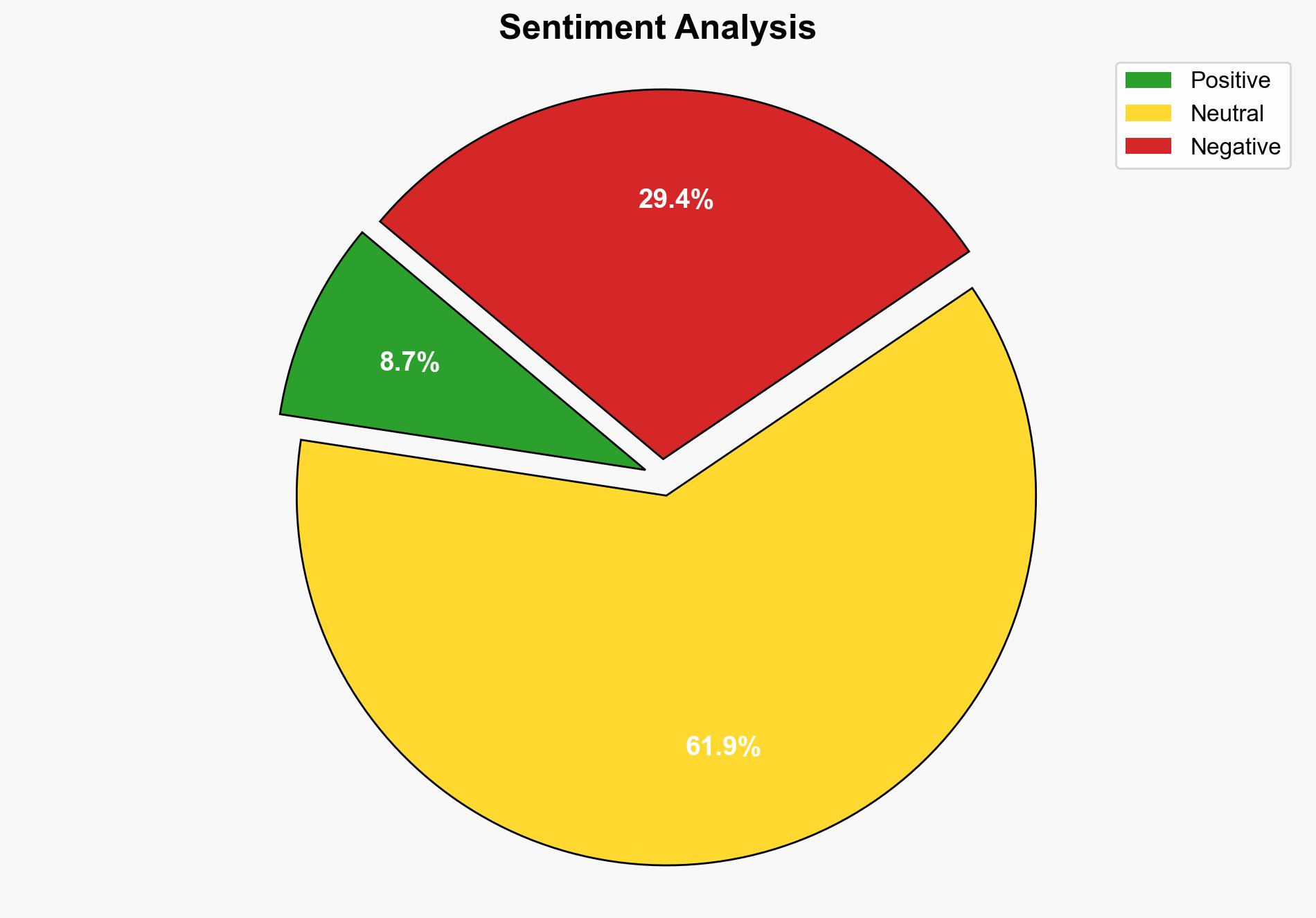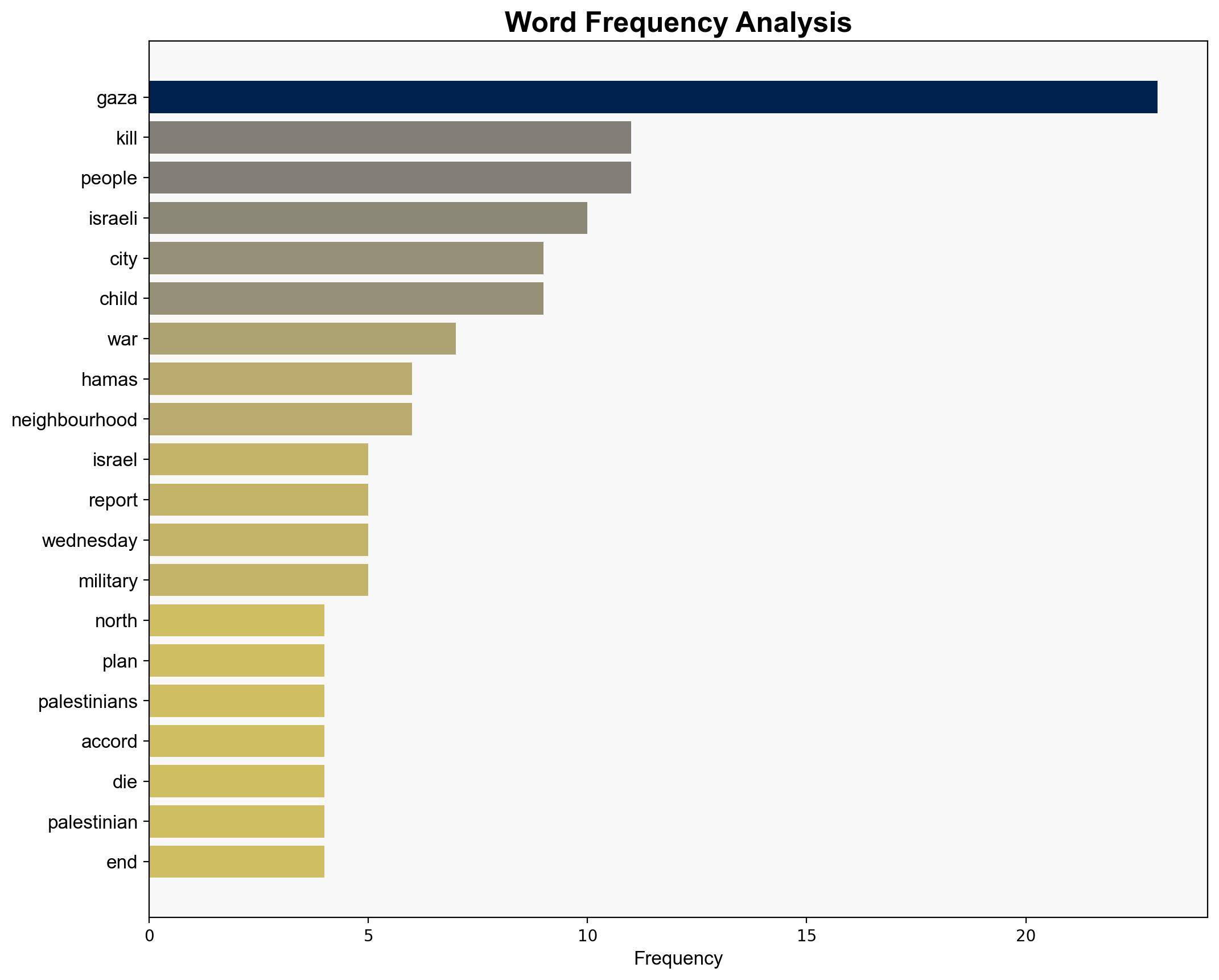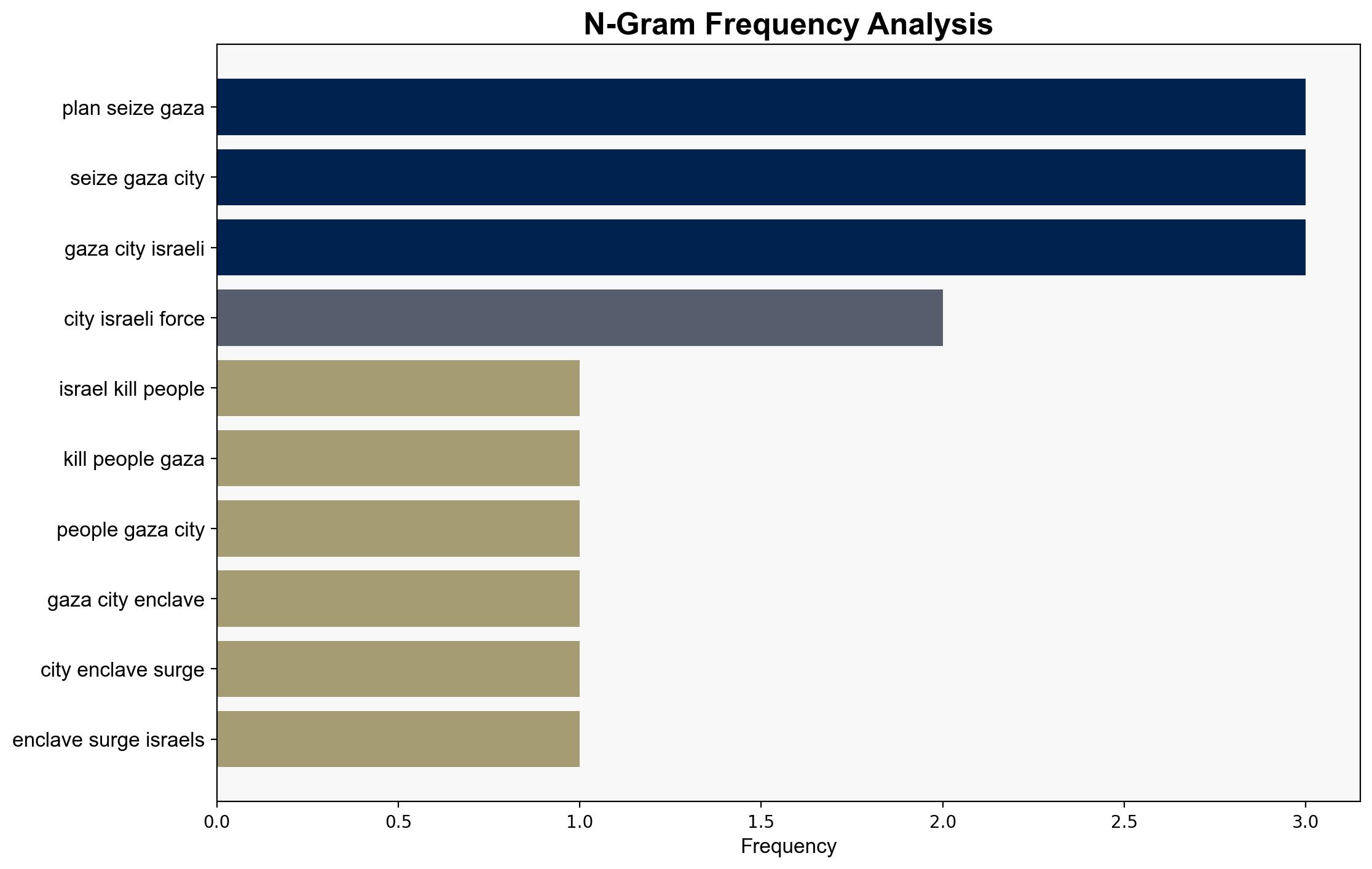Israeli Gaza attacks kill 123 in 24 hours as three children die of hunger – Al Jazeera English
Published on: 2025-08-13
Intelligence Report: Israeli Gaza attacks kill 123 in 24 hours as three children die of hunger – Al Jazeera English
1. BLUF (Bottom Line Up Front)
The ongoing conflict between Israel and Gaza has escalated significantly, with a marked increase in casualties and humanitarian crises, including starvation. The most supported hypothesis suggests that Israel’s military strategy aims to weaken Hamas by intensifying attacks, potentially leading to a humanitarian catastrophe. Confidence level: Moderate. Recommended action: Urgent diplomatic intervention to establish a ceasefire and address humanitarian needs.
2. Competing Hypotheses
1. **Hypothesis A**: Israel’s intensified military operations are primarily aimed at dismantling Hamas’s military infrastructure and leadership in Gaza, with collateral damage being an unintended consequence.
2. **Hypothesis B**: The military operations are part of a broader strategy to create conditions that pressure Hamas into political concessions, using humanitarian distress as leverage.
Using ACH 2.0, Hypothesis A is more supported by the explicit military objectives stated by Israeli leadership and the pattern of targeting Hamas-controlled areas. Hypothesis B is less supported due to the lack of direct evidence linking military actions to political negotiation strategies.
3. Key Assumptions and Red Flags
– **Assumptions**: Hypothesis A assumes that military objectives are prioritized over humanitarian considerations. Hypothesis B assumes a strategic use of humanitarian crises as leverage.
– **Red Flags**: Potential bias in source reporting, lack of independent verification of casualty figures, and the possibility of misinformation from involved parties.
– **Inconsistent Data**: Discrepancies in casualty reports and the extent of infrastructure damage.
4. Implications and Strategic Risks
– **Humanitarian Crisis**: Escalating civilian casualties and infrastructure destruction could lead to a severe humanitarian crisis, increasing regional instability.
– **Geopolitical Tensions**: Heightened tensions between Israel and neighboring countries, potentially drawing in regional powers.
– **Psychological Impact**: Long-term trauma among civilians, particularly children, could fuel future conflicts.
– **Escalation Scenarios**: Continued military operations without diplomatic intervention could lead to broader regional conflict.
5. Recommendations and Outlook
- Immediate diplomatic efforts to broker a ceasefire, involving key regional and international stakeholders.
- Humanitarian aid corridors to alleviate civilian suffering and prevent further casualties.
- Scenario Projections:
- Best Case: Successful ceasefire and initiation of peace talks.
- Worst Case: Full-scale regional conflict with international involvement.
- Most Likely: Continued skirmishes with intermittent ceasefires and ongoing humanitarian challenges.
6. Key Individuals and Entities
– Benjamin Netanyahu
– Philippe Lazzarini
– Taher al-Nono
– Francesca Albanese
– Tlaleng Mofokeng
7. Thematic Tags
national security threats, humanitarian crisis, regional conflict, geopolitical tensions





